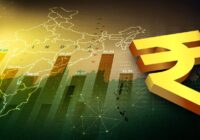When a co-founder of Facebook signals abusive overreach by CEO Mark Zuckerberg, it’s time to recognize that the problem isn’t just a person, but a system and a culture.
Former Facebook employee and best-selling author Antonio García Martínez has penned an article for Wired to second the much-commented op-ed in The New York Times by Chris Hughes, a Mark Zuckerberg intimate and Facebook co-founder. Hughes has echoed Senator Elizabeth Warren in calling for the breakup of the social media giant.
Martinez explains what he observed in his time spent at the company: “Much of Zuckerberg’s limitless drive to make Facebook successful was an apparent desire to achieve “domination” rather than mere riches.”
Here is today’s 3D definition:
Domination:
The narcissistically motivated control over other people and society as a whole, to the point of achieving a feeling of invulnerability; the universal goal of modern entrepreneurs dreaming of establishing a monopoly defined not merely in economic terms
Contextual note
Hughes complains about Zuckerberg’s “focus on growth [that] led him to sacrifice security and civility for clicks.” This sentence contains two culturally significant ideas.
The first concerns the deeply rooted bias in today’s economic and social culture in favor of growth. In December 2018, Business Insider highlighted the fact that Facebook was “ruthless about growth,” which led The Daily Devil’s Dictionary to detect a parallel with the very literally growing problem of obesity in US culture. We concluded that Facebook “is driven by an insatiable appetite and the belief that bigger is not only better, but biggest is never big enough.” Unlike the God of Genesis, creator of heaven and earth, Zuckerberg cannot make the decision — even after seeing that “every thing that he had made … was very good” — to take a seventh-day break simply to rest and enjoy his accomplishments. Zuckerberg is a driven man who sees himself as the god of social media.
Growth doesn’t imply domination, as every ecologist knows. Moreover, limitless growth is an aberration in nature. And as a further reading of the Book of Genesis reveals, the wish to appropriate for oneself the fruit of the tree of knowledge (in this case, unlimited monetizable data on user behavior) can lead even the most driven of mortals to being driven from the Garden of Eden (the ancient Mesopotamian equivalent of Silicon Valley).
Because we have all adopted both the technological and social culture of the internet and become completely inured to it, few readers will notice the second significant idea that Hughes highlights: the commodification of something called “clicks.” Imagine someone in the year 1990 reading Hughes’ accusation that a billionaire sacrificed civility for clicks. In that year, people already knew what it was to click with a mouse, but the idea of such an act having any kind of monetizable value, let alone driving and perverting a famous entrepreneur’s moral sense, would have been impossible to imagine. In 1990, you clicked to turn the page or select an item in a menu. No one was watching, and the only thing developers of web pages were concerned about was making it as easy as possible to get to where you wanted to go.
Historical note
A mere two decades of history have brought us to this point, which concerns not just Facebook — the most extreme example because of Zuckerberg’s absolute control of his board and, therefore, the company’s policies — but also Google, Amazon, Apple and Microsoft. The power acquired by these companies, in different ways and to slightly different degrees, is unquestionably a function of their size, which explains the inertia they have successfully created in the marketplace. It’s an inertia that inhibits the emergence of new, more sustainable and more democratic paradigms.
People use Facebook not because of loyalty to the social network, but because it’s the one place everyone happens to be. You might say they chose to be there, but that distorts the idea of choice. Facebook’s logic is closer to that of the neighborhood drug dealer who offers a fix and then is there to provide more at a price. Google and Facebook have been more successful than even the most reliable drug dealer by hiding the price tag, leaving the impression that the next desperately-needed fix costs nothing. Their generosity is boundless because there’s no direct exchange of money.
Everyone who wants to maintain a social identity becomes a prisoner of their eco-system, which in this case is short — not for ecological system — but for economic system. Google has categorized and tagged everything in the world, making it easier for any and every individual to become a “partaker” in global knowledge (as defined by Google and its algorithms). Facebook provides the environment in which everyone’s narcissism can play out with the personal satisfaction of displaying it in public instead of in front of a mirror.
The world changed radically somewhere around 2000, a few years after Google’s creation and four years before Facebook’s. By 2011, researchers had discovered and analyzed the phenomenon of “audience commodification” in these terms: “Google’s personalized advertising strategies, its precise measurement of advertising costs based on users’ behaviors represented as ‘the number of clicks,’ and the unclear distinction between advertisements and serviced content commodify its users’ online activities.”
Clicks became not only the foundation of the new economy — the means by which some people made money — but also the basis of social recognition. Few people question the mathematics of clicks as the means of discovering the truth about anything. They will be one of the most important factors in the social and commercial logic of artificial intelligence, which of course will thrive according to the pseudo-Biblical wisdom of “By their clicks you shall know them.”
Today, Senator Warren and 40% of the American people appear to approve of breaking up Facebook. More significantly, “just 15% oppose it.” Nick Clegg, Facebook’s vice-president for global affairs and communications, is one of the 15%. His message to a society that worships success to the extent of electing a successful sociopath president — simply because he told people (and they believed him) that he was “a winner” — is that success “should not be penalized.” Usually that is enough to convince Americans, but the realization that the success of some relies on the submission of an entire society has begun to destabilize belief in the false equation between success and virtue.
*[In the age of Oscar Wilde and Mark Twain, another American wit, the journalist Ambrose Bierce, produced a series of satirical definitions of commonly used terms, throwing light on their hidden meanings in real discourse. Bierce eventually collected and published them as a book, The Devil’s Dictionary, in 1911. We have shamelessly appropriated his title in the interest of continuing his wholesome pedagogical effort to enlighten generations of readers of the news.]
The views expressed in this article are the author’s own and do not necessarily reflect Fair Observer’s editorial policy.
Support Fair Observer
We rely on your support for our independence, diversity and quality.
For more than 10 years, Fair Observer has been free, fair and independent. No billionaire owns us, no advertisers control us. We are a reader-supported nonprofit. Unlike many other publications, we keep our content free for readers regardless of where they live or whether they can afford to pay. We have no paywalls and no ads.
In the post-truth era of fake news, echo chambers and filter bubbles, we publish a plurality of perspectives from around the world. Anyone can publish with us, but everyone goes through a rigorous editorial process. So, you get fact-checked, well-reasoned content instead of noise.
We publish 2,500+ voices from 90+ countries. We also conduct education and training programs
on subjects ranging from digital media and journalism to writing and critical thinking. This
doesn’t come cheap. Servers, editors, trainers and web developers cost
money.
Please consider supporting us on a regular basis as a recurring donor or a
sustaining member.
Will you support FO’s journalism?
We rely on your support for our independence, diversity and quality.






